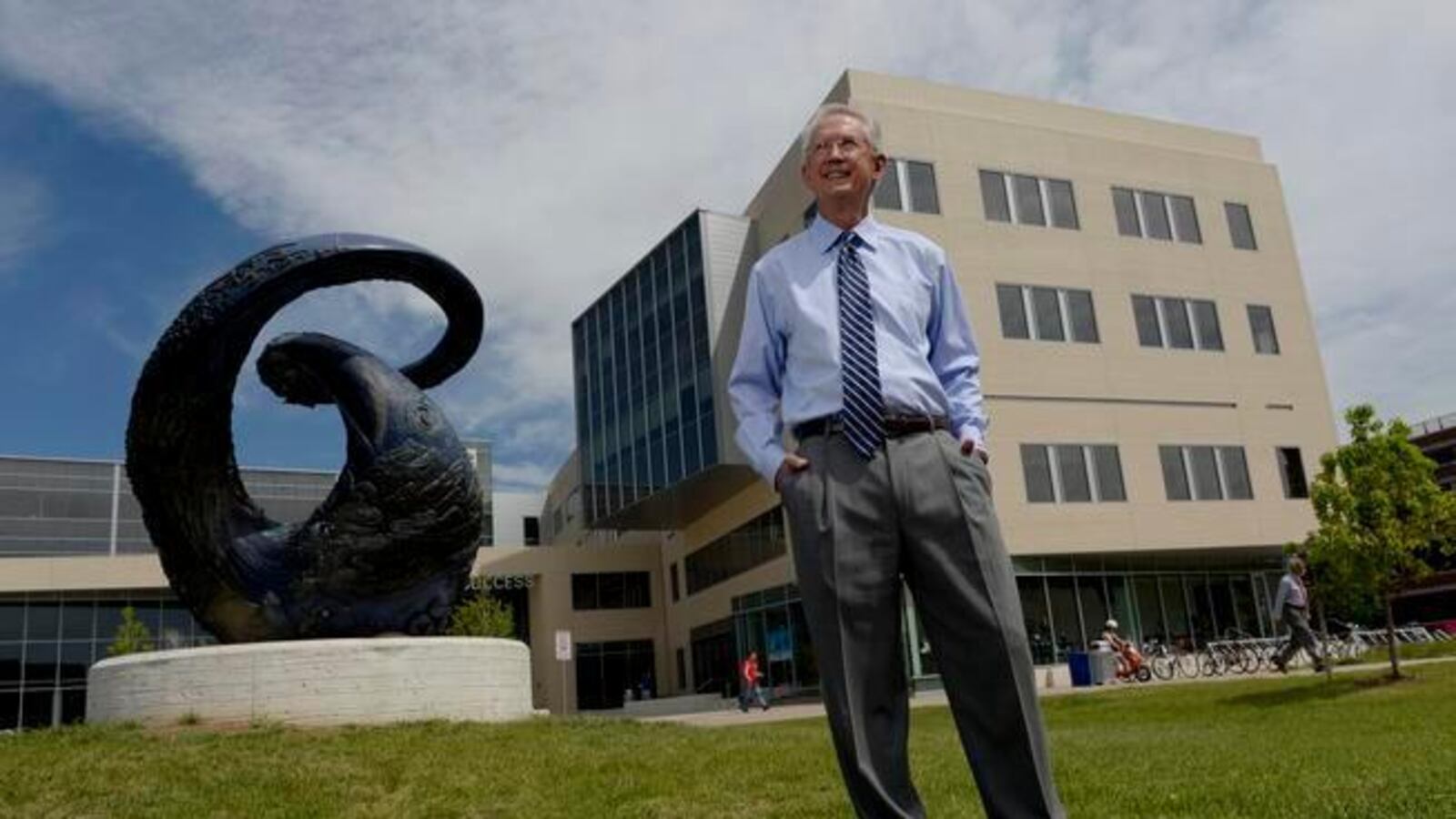Metropolitan State University of Denver president Stephen Jordan, who prioritized making the institution more diverse and opening doors to undocumented students, announced Thursday that he plans to retire in June after more than a decade in the position.
“I truly believe that after many years of working to advance the university, and overseeing tremendous growth and change, it is time for someone else to come in with new energy and an expanded vision,” Jordan said in a news release.
Jordan, 68, took the top job at Metro State in 2005. In a resignation letter to the school’s board of trustees, he said he had several charges, including recruiting more Latino students.
Under Jordan’s leadership, Metro State in 2012 took the bold move of reducing tuition for undocumented Colorado high school students. A year later, state lawmakers followed that lead, passing a bill allowing undocumented students to pay in-state rates at Colorado colleges and universities.
There are currently 341 Metro State students taking advantage of that state law, known as ASSET, according to spokesman Tim Carroll. Over the past three years, Carroll said, the school has enrolled 37 percent of all ASSET students in the state.
Last year, 22 percent of Metro State students identified as Latino, which is shy of the 25 percent needed to designate the university an official Hispanic Serving Institution, qualifying it for federal grant money aimed at improving programs, services and facilities for those students and others.
(ASSET students don’t count toward the total. What’s more, Carroll said the federal government calculates the percentage of Latino students not by headcount but by credit hour. By that measure, only 20 percent of Metro State students last year were Latino.)
Even so, that’s more than in the past. In 2007, just 12.5 percent of students were Latino. In his resignation letter, Jordan said he plans to focus this year on reaching that 25 percent goal.
Overall, the number of students of color has grown during Jordan’s tenure from 24 percent in 2005 to 37 percent last year. The number of first-generation college students attending Metro State has also increased, from 25 percent in 2005 to 32 percent last year.
Among Jordan’s other accomplishments: launching five master’s degree programs and ushering the school from a college to a university; increasing freshman retention rates from 55 percent a decade ago to an overall rate of 67 percent last year; adding more than 200 full-time tenured and tenure-track faculty members; opening three new buildings; and launching public-private partnerships, such as an on-campus restaurant and hotel that employ hospitality students.
Jordan’s retirement will become effective June 30.
Here are links to some of our previous Metro State coverage:
“It’s ‘Metropolitan State University,’” Feb. 2, 2012
“Metro cuts cost for undocumented,” June 7, 2012
“Undocumented students take up Metro offer,” Sept. 5, 2012
“ASSET bill headed to governor,” March 8, 2013
“Metro State’s new education dean: Fund ed schools on quality, not quantity, of teachers,” Nov. 11, 2014

